CROSS CURRENTS

MISSION AT THE BORDERS
Sister Rebeca Spires and her work to stop trafficking.
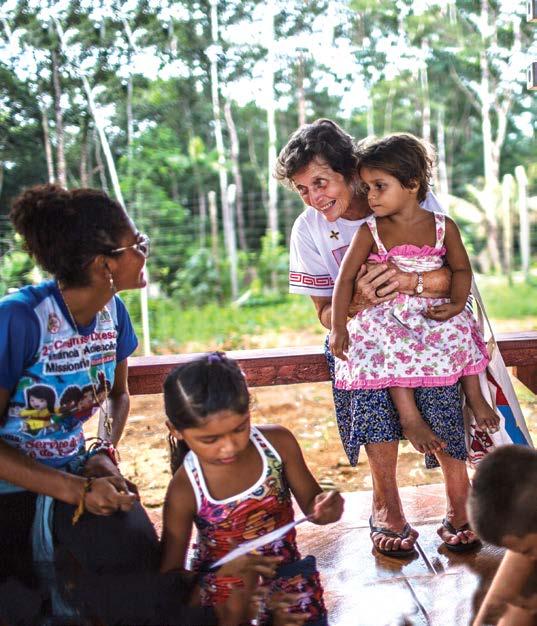
SUMMER 2018 VOLUME 14 ISSUE 2
CROSS CURRENTS
Summer 2018 | Vol. 14/Issue 2
Sisters of Notre Dame de Namur change lives by making known God’s goodness with you.
Throughout the world, we are committed to education. We take our stand with those living in poverty, especially women and children in the most abandoned places. Cross Currents is published two times a year for friends of the Sisters of Notre Dame de Namur by the Ohio Province Development Office.
We invite reader responses on the content of this publication or on the work of the Sisters of Notre Dame de Namur. Comments may be submitted to Sister Mary Ann Barnhorn, Director of Development, at barnhorn@sndden.org.
Sisters of Notre Dame de Namur Ohio Province
701 E. Columbia Avenue
Cincinnati, OH 45215
513-761-7636 / 513-761-6159 (fax) www.sndohio.org
Leadership Team:
Sister Carol Lichtenberg, SNDdeN, Provincial
Sister Kathleen Harmon, SNDdeN
Sister Kristin Matthes, SNDdeN
Sister Linda Soucek, SNDdeN
Publisher:
Sister Mary Ann Barnhorn, SNDdeN barnhorn@sndden.org
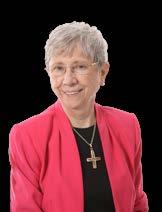
513-679-8117
Writer: Joe Foley
Editor & Production Manager: Angela Weisgerber
Photography:
Cover, pages 3-7: Luis “Dado”
Galdieri
Page 8: Courtesy of St. Edward’s University
Page 9: (top): Vatican News
Back Cover: (in calendar): Michael Courier
All others by staff
DEAR FRIEND,
We all love a happy ending. But we know otherwise, too. We know that for every happy ending, there is a sad one. And for every sad one, an ending that never comes. Our Sisters see this a lot. Yet, it’s their profound conviction of God’s presence in the loneliness and darkness — such as in the crushing disappointment of a father who can’t afford food or a roof for his family, or of a mother who can’t send her child to school, or of a parent whose deformed child is the source of ridicule — that keeps them day after day, year after year, decade after decade, roaming the riverways of Amazonia to serve those not seen nor heard, scratching through the nooks and crannies of a college budget to eke out funds for those not otherwise given a hand up and dodging bullets to check on children who can’t walk or see or hear.
Sister Rebeca Spires has been one with the tropics for 48 years, most of them working with the indigenous peoples of the rainforest of Brazil. For 30 years, Sister Donna Jurick has handled the day-to-day leadership of St. Edward’s University, shaping the lives of untold tens of thousands of young people. For 24 years, Sister Rebecca Trujillo has done whatever it takes to bring a better life to people enduring not only the unjustness of poverty and violence, but also the unjustness of mental and physical disability in Nicaragua.
MISSION AT THE BORDERS
All three Sisters have seen happy endings, and sad ones, and endings that really aren’t even ended, and may never be. Yet they try — relentlessly — to be the good in the world, and to show God’s goodness, and to demonstrate that even in the darkest circumstances, God is the flickering flame that will not go out.
P.S. In the next issue of Cross Currents you’re likely to see another name and face on this page — because I am retiring!
For 22 years I’ve been in the development office, and if all things were possible, I’d choose to be here another 22. But I’m 84, and even though it’s a healthy 84, I find I no longer last as long as I used to.

As Sisters we are called to recognize and make known God’s goodness. I have met that goodness in your heart, and will always be grateful. Please know I still hope to see and hear from you, and that you will have a place in my prayers.
Sister Rebeca Spires has lived 48 years in Brazil, 40 based in the frontier town of Oiapoque. She has lived there so long that sometimes her speech drifts from English to Portuguese to English again without her even noticing.
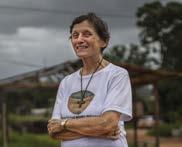
For most of her time in Oiapoque, she has worked with the indigenous peoples living in the surrounding rainforest. She’s helped create alphabets and written forms of languages that before had only been oral. She’s trained teachers, developed religious formation
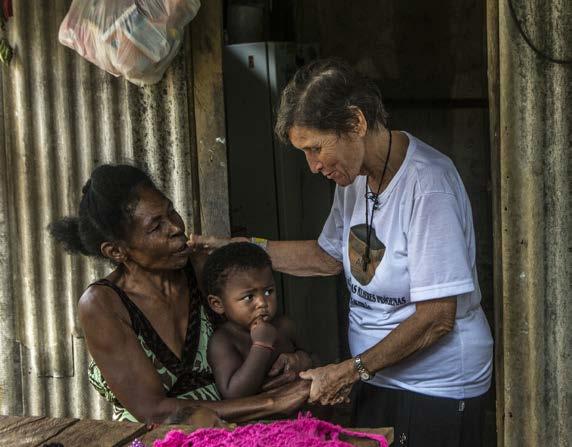
programs, translated instructional materials, fought for subsistence farmers and advocated for territorial rights.
Though her home was Oiapoque, her focus was in the rainforest.
Until a few years ago, when this focus began to change.
Because Oiapoque began to change. Oiapoque, six degrees off the equator, on the northern rim of the Amazon jungle, is almost 400 miles from the nearest city. It’s a river town — on the broad Oyapock River — and a border town. Across
SISTER MARY ANN BARNHORN Director of Development
SISTERS OF NOTRE DAME DE NAMUR
3 CROSS CURRENTS
ABOVE + LEFT
CONTINUED ON PAGE 4
Sister Rebeca Spires, has lived in Brazil for 48 years, 40 on the border with French Guiana.
the river is French Guiana, or simply France as the people of Oiapoque call it.

And it’s due to this border status, and an illegal gold rush on the French side begun during the financial meltdown in the developed world, that Oiapoque has become a through-point for migrants, many of them garimpeiros, or gold miners. With the garimpeiros are the laborers to dig the pits for the mines, the people-smuggling ‘coyotes,’ the suppliers and conveyors of fuel and equipment, the young women dreaming of a husband and a better life — in short — the whole camp-following apparatus that follows a mass movement of human beings. Even indigenous peoples, now that the migration pipeline has opened, go if not to the mines then to the plantations in neighboring Guyana and Suriname.
Commensurate with the influx of people is the physical change to the town, grown from 7,000 people a few years ago to over 20,000 now. On the streets, compras de ouro — gold buying shops — come one after the other, some legal some not, as do the vendors of pumps and hoses and the deadly mercury used to bind gold. Then down from the shops, on the mud beaches, are the barracudashaped skiffs — the pirogues that wait for nightfall when they’ll make the lantern-less crossing over the Oyapock ferrying people and contraband.
“But all those we’re seeing,” says Sister Rebeca, “they dream of having a job, that’s all. They dream of seeing their children grow up, and dream of having enough to eat, and dream of having a roof. We have to be
there for these among us. How will they know God’s goodness if we don’t show it to them?”
This showing to them God’s goodness is a primary reason Sister Rebeca has redirected much of her time from the indigenous people in the rainforest to the migrating people in the town.
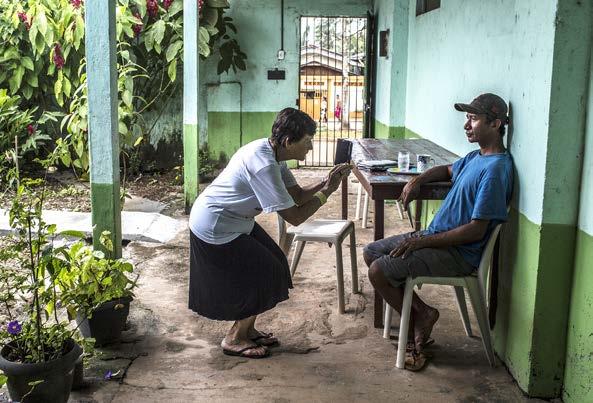
Responding to what she herself has seen, and responding to the call of Pope Francis to ‘go to the borders,’ Sister Rebeca along with two Brazilian Sisters of Notre Dame de Namur, a Sister of the Eucharistic Heart of Jesus, and three lay women volunteers initiated Missão nas Fronteiras, Mission at the Borders, in 2015.
Missão nas Fronteiras first ministered from quarters leased from the local parish. Then, on land donated by a townsman, and with the help of the Sisters of Notre Dame de Namur, a way station was constructed. There Sister Rebeca, the other Sisters and the lay volunteers offer meals, showers, a hammock for a night or two, and a Christian presence to migrants on the move. They also provide education, especially to women and young girls (both migrants and those residing in the town), as to the danger signs of trafficking and/or sexual
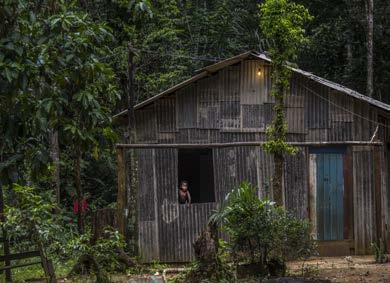
exploitation. They help connect those in need with existing social service supports. And they collaborate with law enforcement in identifying the corrupt and illegal activities related to trafficking and exploitation. By doing so, says Sister Rebeca, they are addressing human needs of the suffering on an individual basis while at the same time working for more systemic change.
“Our mission is for those people who aren’t seen or heard by anyone else,” she says. “It’s this Jesus thing. No one can be
invisible, everyone has to be seen and heard and cared for.”
Counted too in her in ministry are not only those migrants going north, but those returning, usually in much worse condition. Some have been arrested by the French gendarme who as a matter of practice burn migrants’ clothes and all their possessions (even their boots) before dumping them unceremoniously over the river into Oiapoque.
BELOW
4
CROSS CURRENTS
SISTERS OF NOTRE DAME DE NAMUR
CONTINUED ON PAGE 6
Sister Rebeca takes the photo of a stranded migrant, to notify his family and to help him get home.
Our mission is for those people who aren't seen and heard by anyone else. It’s this Jesus thing. No one can be invisible, everyone has to be seen and heard and cared for.”
— SISTER REBECA
In Oiapoque, there are few safety nets. Poverty can
mean starvation.
Some, too, have managed to trek back on their own through the jungle despite the dangers of jaguars, 500-pound anacondas and an array of poisonous insects and spiders. Some, sticking to the roads, have been accosted and beaten by robbers. And still others, never again seen in Oiapoque — or anywhere — step onto a truck or a bus thinking they are heading toward the border, only for the
bus to halt in some desolate spot there to be boarded by sicários, or hitmen.
Of those who do make it back to Oiapoque, on their own or forcibly, almost all are penniless, hollow-eyed, and embarrassed over their plight.
“They thought they were improving their lives,” Sister Rebeca says.
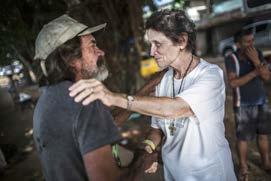
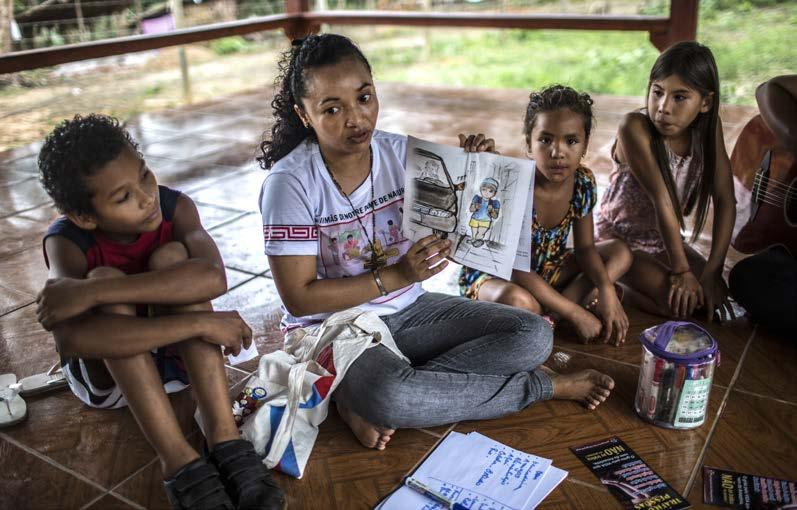
“But they fell into traps of illusion.”
These people, the returnees, you see down by the ‘seaside’ — so called because of the river’s breadth — living along the seawall or beneath the docks, stranded and half-starved. Often, as Sister Rebeca says, “they are just there forever.”
The Sisters and lay volunteers visit them. They share some of their own food bought with their stipends. They try to get messages home to their loved ones. They offer showers and clothing. Just as with those crossing north, still with hope, they offer a Christian presence to those returning, who often have little. If the Sisters could, they would buy the bus tickets necessary to send everyone home. But they are too few and the stranded too many. It’s such a hard call, says Sister Rebeca. “Jesus never overlooked anyone,” she says. “Never!”
For three years, the work of Missão nas Fronteiras has been made possible because four religious Sisters and three lay women have labored for stipend wages. “Volunteers make it happen,” Sister Rebeca says, “and we need them to stay.” Among her highest priorities is to keep her team together.
“Those we're encountering," she says, “they’re not trying to be wealthy. They just want a decent life.”

On any given day, you’ll see Sister Rebeca and the other Sisters and lay volunteers, sometimes in pairs, sometimes alone, coming
and going from the way station for migrants arriving, or down on the seaside among those who have returned. You’ll see them by their umbrellas they hold against the equatorial sun.
—SISTER REBECA
In the meantime, the gold mining in French Guiana continues, as does the migration across the Oyapock. If anything the migration is increasing. The two countries — Brazil and France — talk occasionally of cooperation but little happens. The price of gold goes up then down on international markets, investors sell and buy, and thousands of miles away the Wild West atmosphere continues in remote Oiapoque.
“I came to the realization this was happening under my nose,” says Sister Rebeca. “And I had to respond.”
7 6
All these people, they’re not trying to be wealthy. They just want a decent life.”
CROSS CURRENTS
ABOVE
A key task of Mission at the Borders is teaching children how to avoid those who would do them harm, especially as it relates to trafficking.
LEFT Sister Rebeca down on the ‘seaside,’ where Oiapoque’s homeless live, including stranded migrants.
NEWSBRIEFS
DOROTHY STANG PROTÉGÉ ARRESTED
“One thing was always clear,” says Sister Mary Ann Barnhorn, SNDdeN, a longtime friend and Director of Development for the Sisters’ Ohio Province, “for all thirty years — bringing the university through three strategic plans, three accreditations, managing multi-million dollar budgets, hiring ten deans, reorganizing the athletics, tending to the needs of 5,000 students — you always saw Notre Dame, because Sister Donna lives Notre Dame.”
A Brazilian priest working with subsistence farmers in the Amazon was arrested March 27 on charges similar to those leveled against martyred Notre Dame Sister Dorothy Stang, with whom he worked.
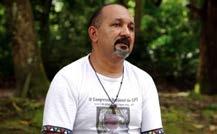
Father José Amaro Lopes de Sousa is a leader of the Pastoral Land Commission, which advocates for agrarian reform, especially regarding the rights of small farmers.
After his arrest, Father Amaro was transferred to the same facility holding a prisoner convicted in Sister Dorothy’s death. It’s reported that during Father Amaro’s incarceration, he undertook pastoral duties among the prisoners. He has since been released awaiting trial.
Sister Jo Anne Depweg, of the Ohio Province, works alongside Father Amaro in Anapu, Brazil. She says
CLEARING OUT, MOVING ON
For five years, Sister Donna Jurick, SNDdeN, served as president of Trinity University in Washington, D.C. Taken by itself, that would constitute a typical tenure in higher education leadership. It didn’t for Sister Donna.
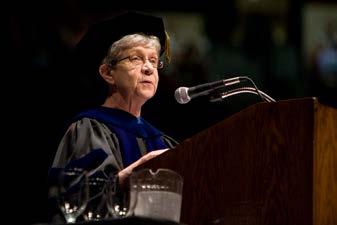
From the East Coast she moved in the opposite direction from her Ohio roots, to Austin, Texas, there to serve thirty years in the top leadership of St. Edward’s University, both as executive vice president (provost) and academic vice president. She served under two presidents, asking the second one, upon his arrival, “Are you here to do your job or to do mine?”
Only mine, this second president assured her. Sister Donna retired June 30.
During her time at St. Edward’s, she expanded the breadth of the student body to include students from affluent, middle-class and low-income families, and to draw equally among young people of proven academic ability as well as those who had not before been given the resources to excel. She helped build St. Edward’s College Assistance Migrant Program, and increased the number of international students to almost 10 percent of all undergraduates.
George Martin, president of St. Edward’s, in recognizing Sister Donna at her retirement reception, announced the establishment of a Sister Donna M. Jurick Faculty Career Award. In remarks, he listed Sister Donna’s many accomplishments, spoke of her decision to remain at the university rather than pursue other leadership opportunities, and told of the close bond they had forged over the nineteen years spent together guiding the university.
“We have been valuable confidants for each other, able to test ideas without surrendering personal responsibility and with total trust that those ideas would not be shared with anyone else,” he said.
About her retirement, and after thirty years on the job, Sister Donna told the Austin American-Statesman newspaper, “When you retire, you should just retire. On June 30, I’ll give up this one office, move upstairs to basically clear out and move on.”
She said this with a smile, the reporter noted.
MARKING TIME IN NICARAGUA
They are wanting to lie low. Sometimes they can, sometimes not. Sister Rebecca Trujillo and the children and adults with disabilities she serves are enduring their fourth month of civil unrest in Nicaragua.
Hundreds have died, highways are blocked, commerce at a nearstandstill, and despite efforts by the United Nations, Pope Francis and the cardinal of Managua, the violence continues to escalate.

The streets are terrifying, according to Sister Rebecca. To go outside is to risk an encounter with government forces, or to be swept up by protestors, or to be accosted by the hundreds of squatters, who upon entering the city have ransacked and looted much of its infrastructure.
“We close at 4 p.m. each day,” she says, “and everyone rushes home and stays within their small houses for protection.”
Sister Rebecca’s ministry offers special-needs services, including microbusinesses for employment, special education for children, and support groups for families, especially mothers.
Often, the paycheck from the microbusinesses is all a family will have to put food on the table
the young priest serves everyone, no matter who they are. She believes, “Padre Amaro is all things to all people. He has given his life to the people.”
and keep a roof overhead. The businesses include recycling, a yogurt factory, a café, the production of arts and crafts, and a shop making wheelchairs from bicycles.
So far, and with the support of the Sisters of Notre Dame de Namur, the microbusinesses have continued to operate, but can’t much longer. Supply lines are failing, both in-coming and outgoing. Yogurt is still being produced, but there are no containers arriving with which to package it. Forty thousand pounds of recycled paper is bound and ready for shipment, but the trucks to transport it can’t make it through the roadblocks.
“We are all praying for each other and for Nicaragua,” says Sister Rebecca, “and we are praying for our enemies and those who want to kill. More than ever we need to breathe prayer.”
9 8
CROSS CURRENTS SISTERS OF NOTRE DAME DE NAMUR
One thing was always clear...you always saw Notre Dame, because Sister Donna lives Notre Dame.”
—SISTER MARY ANN Security forces patrol the streets.
WE WILL ALWAYS REMEMBER
For More Details
To read a more detailed obituary or to leave a comment, visit “About Us” at: www.sndohio.org



HIGHER RATES FOR CHARITABLE GIFT ANNUITIES
Higher rates for charitable gift annuities went into effect July 1, 2018. Now may be a great time to consider a gift annuity with the Sisters of Notre Dame de Namur.
GIVE AND RECEIVE. Gift annuities are often called the “gift that gives back” because you receive payments for the rest of your life or the life of a loved one. Gift annuities date back to the 1840s in the U.S. and have been popular for so many years because of the attractive benefits they provide, including:
• Fixed payments for life. Once your payment rate (based on your age) is determined, it will never change, regardless of stock market conditions or other economic fluctuations.
• A portion of your gift is a tax deductible charitable contribution. The tax deduction is usually for about half of the amount transferred. Any unused deductions can be carried over for up to five years.
SISTER MARGARET USUKA
Formerly Ignatius
November 13, 1926
– March 21, 2018
Sister Margaret served as teacher and servant of the poor, helping bring the riches of Christ to people living all over the world. Her artistic abilities and openness to various cultures enabled her to become one with the people. “I know that the goodness I find in any culture enriches me and my life…how varied and colorful and vibrant the Body of Christ is!”
SISTER MARY ALICE WEBER
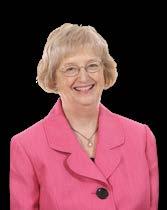
Formerly Alice Therese
August 4, 1917
– June 8, 2018
Sister Mary Alice was set on being a teacher at a young age, and for her, being a teacher meant being a Sister. For 48 years, she served in formal education. Sister Mary Alice, nicknamed “Sarge,” possessed a rough demeanor that masked a fun-loving, teasing, adventurous spirit. In her 100 years of life, Sister Mary Alice had a marvelous memory for people and past events, an ability to appreciate each person for their uniqueness and a “joy —the type that comes from the little things.”
SISTER AGNES FREDERICK BLEE
March 14, 1925
– April 9, 2018
Sister Agnes was drawn by an “undeniable joy” she could see in her Sisters of Notre Dame de Namur teachers, and she shared this joy with countless others all her life long. She had an artist’s eye for beauty, and was also dubbed “Sister Scientific” by her students, since she was a natural for opening up the mysteries of math and science in the classroom.
• Partial avoidance of capital gains tax. No capital gains tax is due immediately when you use appreciated assets to fund a gift annuity for yourself. And the tax that is eventually due is spread out over your payment distributions for a period of time.
• Payments can also benefit family or other loved ones. It’s possible to set up a gift annuity that makes payments to your spouse, siblings or other loved ones.
See the chart for the new, higher gift annuity rates now available. Notice that payment rates increase with age. The older you are when you create your gift annuity, the higher the rate of your payment.
ACGA* RATE COMPARISON
What better way to support the Sisters of Notre Dame de Namur and receive payments for life and tax benefits now?
If you would like to learn more about how a gift annuity could benefit you and the Sisters, please contact me today at khadden@ohsnd.org or 513-679-8106.
 KAREN HADDEN Associate Director of Development
KAREN HADDEN Associate Director of Development
11 10
SISTERS OF NOTRE DAME DE NAMUR
CROSS CURRENTS
(SINGLE LIFE) AGE 65 70 75 80 85 90+ OLD RATE 4.7% 5.1% 5.8% 6.8% 7.8% 9.0% NEW RATE 5.1% 5.6% 6.2% 7.3% 8.3% 9.5% INCREASE 0.4 0.5 0.4 0.5 0.5 0.5
*American Council On Gift Annuities
INTRODUCING NEW SISTERS OF NOTRE DAME DE NAMUR PRAYER COMMUNITY CARDS


Our Notre Dame Prayer Community is a way for our friends to formally bring their loved ones into our circle of prayer. The names of all who are enrolled in the Prayer Community are listed in a special book outside of our chapel at Mount Notre Dame. Each week we remember the members of our Notre Dame Prayer Community at Mass in St. Julie Chapel.
We have created four new cards that are appropriate in times of loss, illness or celebration. We invite you to use these cards whenever you wish to enroll someone in our Prayer Community. You can order the cards at www.sndohio.org/spirituality/Prayer-Cards.
CROSS CURRENTS CALENDAR
Saturday, September 29
Live the Good Volunteer
Chicago, IL • Our Lady of the Angels
Saturday, October 6 Mornings of Spirituality
Cincinnati, OH MND Spirituality Center
Friday, October 12 – Sunday, October 14 Live the Good Volunteers
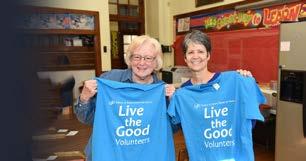
Kermit, WV • Big Laurel Learning Center
Saturday, October 20 Live the Good Volunteers Cincinnati, OH • Location TBD
www.facebook.com/SistersOfNotreDamedeNamurOhio
www.youtube.com/channel/UCIR4latCtInQmn0JCMSfr7Q
twitter.com/SNDdeNOhio
www.sndohio.org
Saturday, November 3 Mornings of Spirituality Cincinnati, OH MND Spirituality Center
Saturday, November 10 Notre Dame High School for Girls All School Reunion • Chicago, IL Crowne Plaza Chicago O’Hare
Wednesday, December 5
Taizé Prayer – Advent Service Cincinnati, OH • St. Julie Chapel
VISIT OUR WEBSITE FOR MORE DETAILS AND TO REGISTER.
FOLLOW US ON SOCIAL MEDIA + THE WEB




















